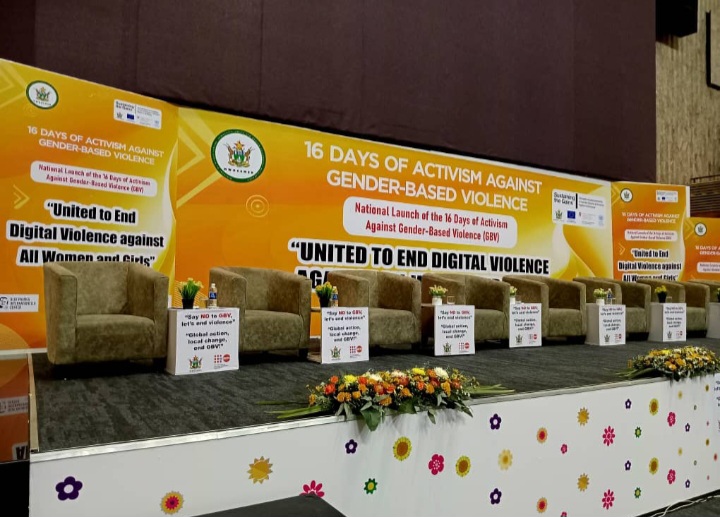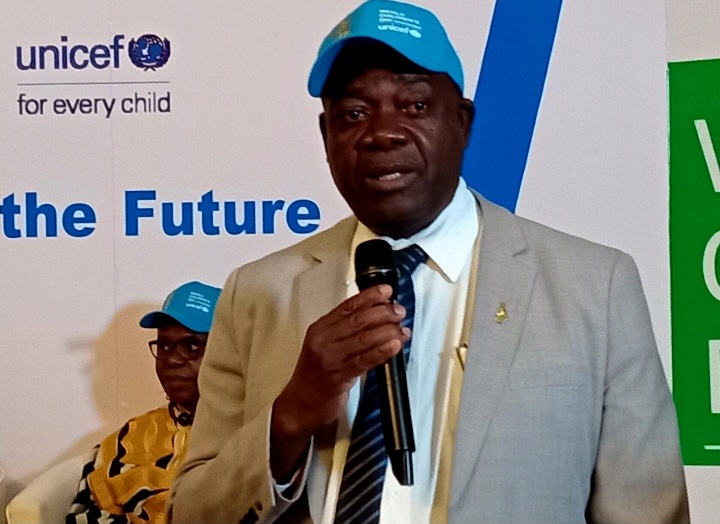Ms Wadzanayi Chitiga, ECOZI Programmes Manager
By Dickson Bandera
The Education Coalition of Zimbabwe (ECOZI) has intensified its national efforts to promote the integration of Information and Communication Technologies (ICT) in education, with a special focus on enhancing both access and quality in rural and urban schools.
This drive includes capacity-building programmes, policy advocacy, and infrastructural support aimed at transforming Zimbabwe’s education landscape in line with global digital trends.
As part of its multi-pronged strategy, ECOZI on Tuesday hosted a high-level media workshop in Harare, aimed at equipping journalists with the skills and ethical frameworks needed to report on ICT in education.
The initiative falls under the “Digitalize Schools to Transform Education in Zimbabwe” (DigSTEinZ) project, which is designed to support the Ministry of Primary and Secondary Education’s efforts to close the digital divide in the education sector and ensure that no learner is left behind.
The workshop sought to underscore the pivotal role of the media in shaping public discourse and policy direction regarding the digital transformation of Zimbabwe’s education sector.
Attended by media practitioners from across the print, digital and broadcasting media, the session explored critical themes including ethical reporting, digital literacy, the responsible use of hashtags, and the need for accuracy and sensitivity when reporting on stories online.

The training also sought to foster responsible journalism that supports ICT-driven education reforms and national development. Emphasis was placed on the journalist’s duty to inform and educate, amplifying the key messages so that audiences are transformed with responsibility.
ECOZI Programmes Manager Ms Wadzanayi Chitiga, delivering the opening address, underscored the indispensable role of journalists in informing public discourse and advancing digital inclusion.
“As we are doing our advocacy, we are calling upon the media to come on board, emphasizing the importance that we’re going digital. We are now in the 21st century. Artificial intelligence has come on board. And you as media, are using it, and you’ve learned the disadvantages.”
She went on to challenge journalists to reflect on their role in shaping Zimbabwe’s digital future:
“So as you write about education—how do we embrace the future of technology? How do we learn from it? How do we learn from it so that the work which is being provided by students is accreditable?” she said.

ECOZI’s digital literacy pilot project which ran in Nkayi, Umguza, Mhondoro Ngezi, and Zvimba was supported by development partner GIZ – Deutsche Gesellschaft für Internationale Zusammenarbeit (GIZ) GmbH, the German international development agency. The project managed to ascertain the status of ICT education across the four piloted districts. Chitiga also acknowledged other partners like World Vision and Plan International for their efforts in providing diverse interventions to support ICT education in schools.
Zimbabwe currently operates under a national ICT policy framework that aims to enhance the role of technology in education, among other sectors. MoPSE has its own complementary strategy to mainstream ICT within the education system, particularly through the Heritage-Based Curriculum, which integrates digital literacy as a core component. This curriculum is designed to ensure that learners at all levels graduate with skills relevant to a rapidly evolving digital world.
ECOZI’s media training initiative is part of a broader, long-term effort to bridge the digital divide, particularly in marginalised communities. These initiatives continue to champion innovations that support Sustainable Development Goal 4 (SDG 4), which aims to ensure inclusive and equitable quality education and promote lifelong learning opportunities for all.
ECOZI has identified several persistent challenges to ICT adoption in education, including limited internet access, inadequate digital infrastructure, and unequal access to devices across socio-economic lines.
The organisation is actively collaborating with government, development partners such as Plan International, World Vision, Unicef, civil society, and the private sector to train teachers, raise awareness for ICT and advocate for inclusive ICT policies to ensure that no learner is left behind.
A non-governmental umbrella body that brings together over 60 civil society organisations working in the education sector, ECOZI is an advocate for quality, equitable, and inclusive education for all Zimbabweans. The coalition works through policy engagement, evidence-based advocacy, stakeholder coordination, and grassroots programming.


